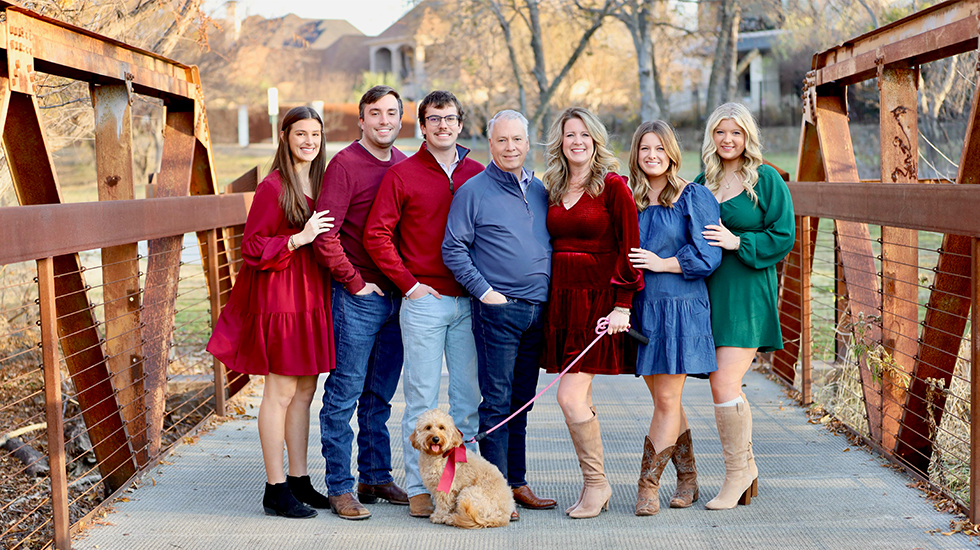


The views expressed in this blog post are intended for informational purposes only. National Breast Cancer Foundation does not endorse any specific political candidates.
After years of faithfully getting her annual mammogram, Shona was caught off guard when one such routine mammogram revealed a mass in her breast, soon determined to be Stage 1 invasive ductal carcinoma (IDC).
At that moment, as 1 in 8 women can relate to, Shona knew that she was in the fight of her life. But Shona faced an additional dilemma. As an elected official in her community of Frisco, Texas, Shona would need to decide how public to make her fight and where her priorities would lie.
Watch Shona’s full interview below.
For years, Shona had been vigilant about receiving her annual mammogram, not only because she knew that’s what is recommended by healthcare professionals, but also because of her family history of breast cancer. Shona’s mom was a Stage 4 breast cancer survivor for 17 years, passing away in 2022, the same year that Shona was diagnosed.
“It’s incredible that she was able to live life pretty abundantly after her diagnosis,” Shona shares. “When she was diagnosed, I was 35, my youngest child was 1, and immediately then, because of how aggressive her cancer was, I started routine mammograms annually.”
Shona says that it wasn’t just that she received a mammogram each year, but that she “had them consistently in the same month each year, which my doctor said was very important for creating that baseline of following what was going on in my body each year. Every January, I had a routine mammogram, which I firmly believe led to the early detection [of my breast cancer].”
In the midst of Shona’s diagnosis and treatment, she was in a public-facing role as an elected official in her community. This posed a unique challenge for Shona, who had to decide how public or private to be about what she was going through. She also had to decide what would be her priority. Although it was a difficult decision, Shona decided to set some boundaries in order to conserve her health and energy.
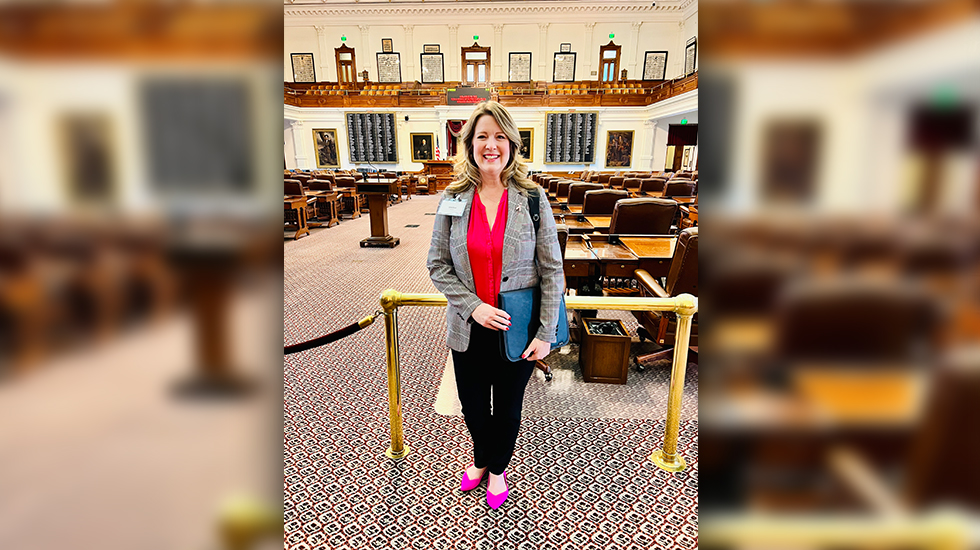
“I was an elected official in our community when I was diagnosed, and I was up for reelection,” Shona shares. “A lot of decisions had to be made about what my next steps were going to look like. I do think that you can have a diagnosis like breast cancer and keep going, whatever that path looks like for you. But my husband looked at me one day and said, ‘I need you to fight cancer as hard as you’re going to campaign.’ And for me, when I looked at my family, I realized my breast cancer fight needed to be the campaign I focused on. I knew that other people could do things out in our community. But no one else could be my husband’s wife. No one else could be my children’s mother. And so I made the choice to step back and focus on my cancer journey.”
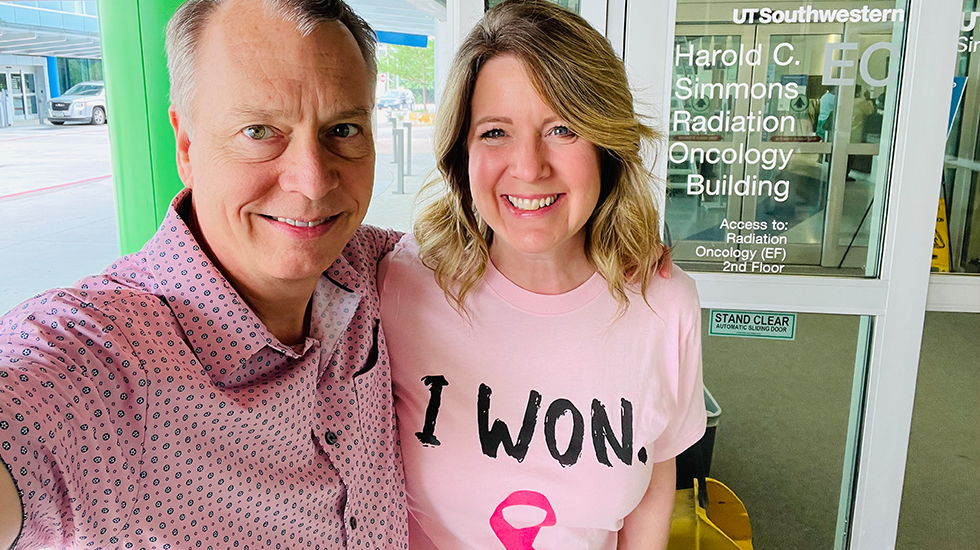
Part of the reason Shona chose to be public about her diagnosis and treatment was to help others in a similar situation feel supported and not alone.
Shona shares, “I made the choice to be public about the hard things as well as the positive things. We want to be positive about everything, but for a woman who’s in the middle of breast cancer, the fear and the emotional drain is sometimes so overwhelming that I think it helps to be honest: I feel that, too. And if I’m feeling that, and you’re feeling that, then we can feel it together, and we don’t feel as abnormal in a very weird and abnormal journey.”
After sharing about her journey, even the parts that were difficult and overwhelming, Shona began hearing from other women who, inspired by her, scheduled their own mammograms. “At that point, I realized there was a message to be shared,” she says. “If it saves just one woman’s life, then that means something. It enabled me to continue sharing even the emotionally difficult parts of my journey.”
Even now, Shona continues to identify with and encourage other women who may be struggling, telling them, “I’ve struggled, too. And what you’re feeling is legitimate, and it’s real, and it’s okay. So let’s walk it together.”
Now a breast cancer survivor, Shona uses the culmination of all of her experiences to encourage other women. She offers the following advice for anyone facing breast cancer—before, during, and after a diagnosis.
For many women like Shona, with a significant family history of breast cancer and facing years of breast cancer screening, anxiety over those screenings—also called scanxiety—can come up as they nervously await results, or a potential diagnosis.
Shona offers advice for women who may be fearful of getting their screenings or who may choose to avoid them due to that fear. She says, “I think the best way to get over the fear is to go through the process and get the mammograms. The very first mammogram I had, I was scared to death. But once I went through the first mammogram, I knew what to expect and knew what would be coming. The best way for me and my sisters to combat our fears and what we might experience was to hit it head-on. And the only way to do that was to get the screening done.”
Genetic testing for breast cancer gene mutations also plays a role in Shona’s journey, with her mother being tested after her diagnosis. At the time, Shona’s mother’s results revealed that she did not carry a breast cancer gene mutation. But after Shona’s diagnosis, she and her sisters decided to be tested as well. Though no genetic link has been found, Shona is still a proponent of genetic testing when there is a family history of breast cancer.
“I think genetic testing provides one more layer of information, one more piece of knowledge,” Shona says. “The more knowledge you have, the more you can make decisions about what you need to do about your own health now, 5 years from now, 10 years from now, 20 years from now. Take the opportunity, whatever information you can get about your own health. I think it’s so vitally important. And if you would do it for your kids, you should do it for yourself.”
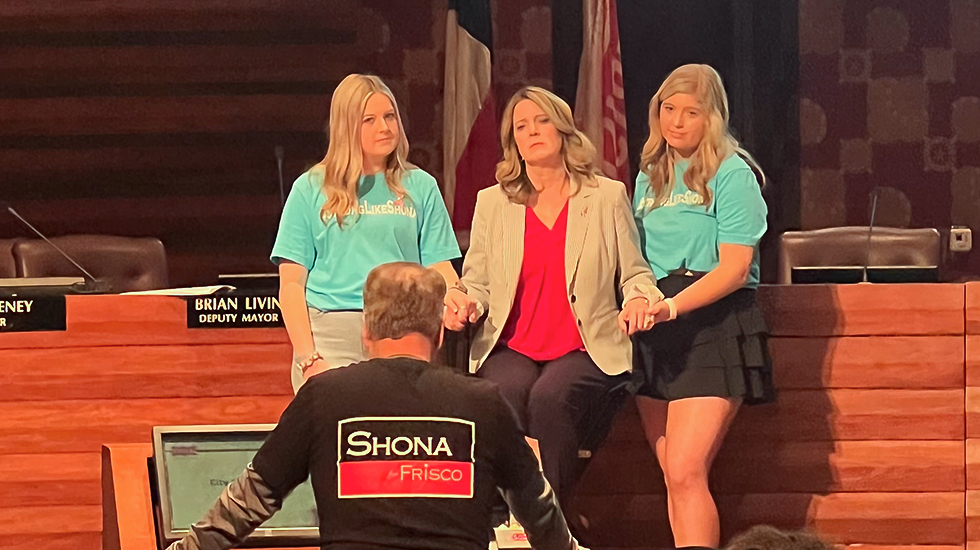
After Shona completed treatment, she shared that she felt guilt over not being immediately okay, physically and emotionally. She says, “I thought, ‘I should feel better now, I’m done with treatment—I should feel like a warrior. And I don’t. What is wrong with me?’”
Seeking support and advice from others who had been in her position, Shona joined an NBCF support group:
“Once I walked into that [support group] room, and realized that the ladies sitting around that table automatically knew what I was feeling and experiencing, and understood it and validated it, it didn’t just give me the ability to feel it, it gave me the ability to work through it in a hopeful and appropriate way that allowed me to process it better. Support groups are an incredible way to lean on each other in the middle of it, after it, and beyond your journey in a way that I don’t think you find in other places.”
Learn more about the physical and emotional challenges faced by breast cancer survivors in this free guide that features advice from survivors themselves.
Today, Shona continues to empower, encourage, and support others. She considers this work part of her continued journey, saying, “If I can’t advocate for other women, then my journey is a little bit of a waste. If I can’t give back to someone else, I’m losing something.”
As part of her advocacy, Shona shares the value of making empowered decisions with other women, reminding them, “You have the right to tell people what you need from them. You have the right to tell people what you don’t need from them. And you have the right to question things.”
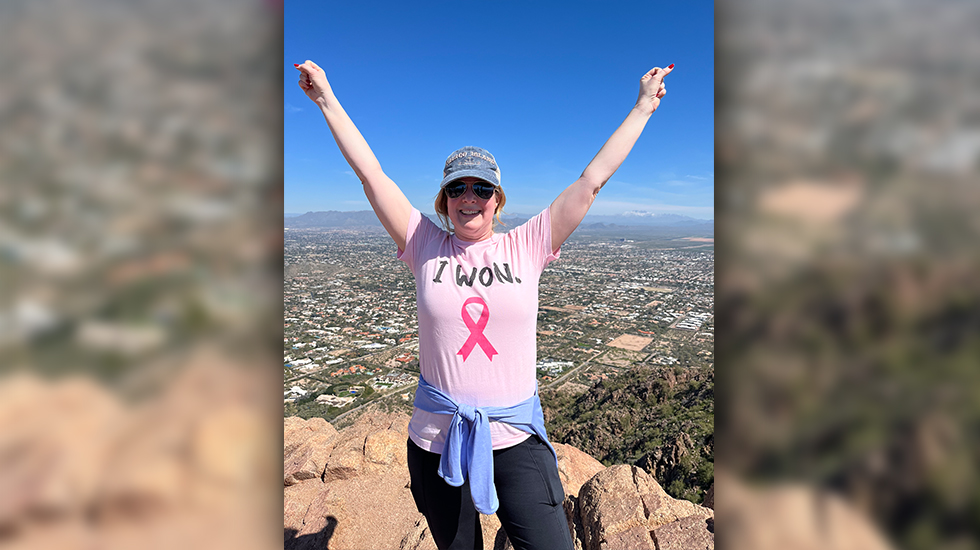
Shona also encourages women who have been diagnosed with breast cancer to reach out to National Breast Cancer Foundation. NBCF’s mission is Helping Women Now, in the moment they need it most, whether it’s receiving a comforting HOPE Kit during treatment, the help of a patient navigator to walk them through the complex cancer care system, a support group to find encouragement and belonging, or free educational resources to prepare them for the road ahead.
“What do you do when you first get that phone call that you have breast cancer?” Shona asks. “I would say you reach out to NBCF. They’re going to be able to help you in the moment, right now, find the resources you need to get through those first stages of the journey, the middle stages of the journey, and the final stages as well.”
National Breast Cancer Foundation is here for you as you navigate a breast cancer diagnosis. Visit our website to learn about NBCF breast cancer support groups, obtain free educational resources, or find a patient navigator in your area.
Donations are always appreciated, but there are lots of great ways to get involved.


Shona, you are an inspiration! I love how you are always sharing honest and hopeful advice in our support groups! You’ve made the journey easier for so many. Thank you for sharing and always taking care of others!
I admire Shona for her wisdom and her determination to pour into those affected by breast cancer. NBCF is the gold standard for those seeking help in the breast cancer journey. They live their motto “ helping women now”